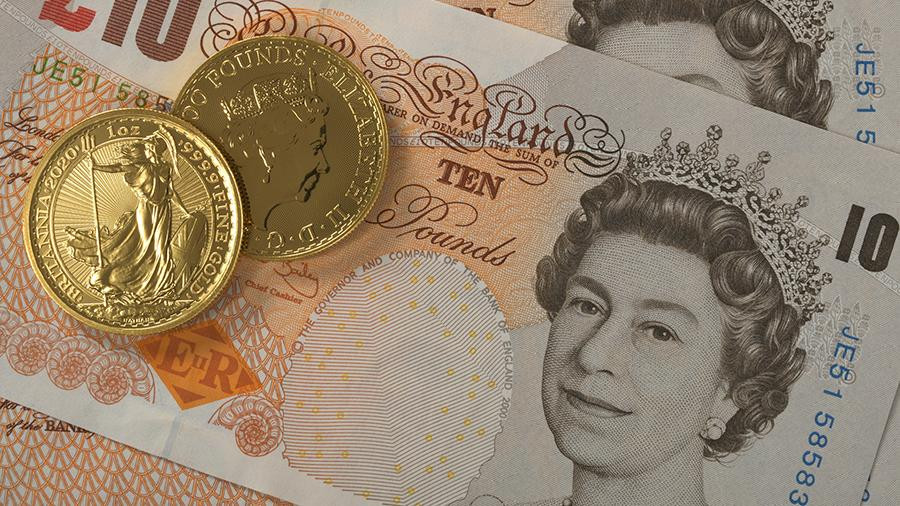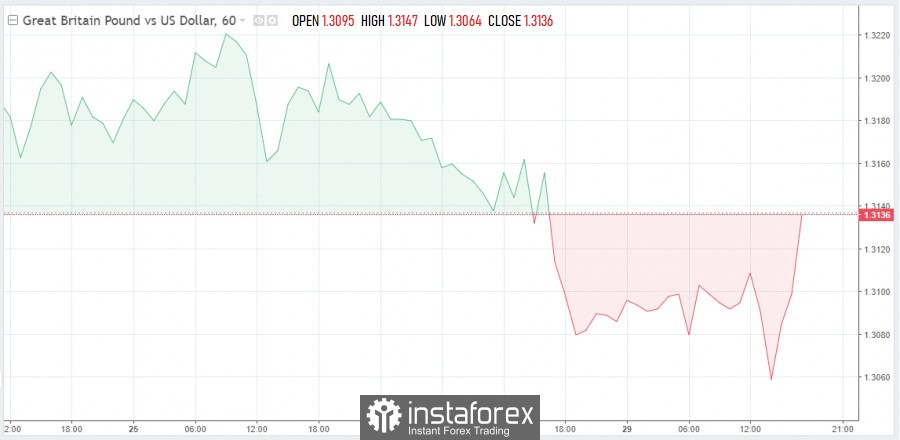
The British pound, paired with the dollar, lost more than 100 points on Monday. It is trying in vain to find reasons for growth on Tuesday. The British currency's weakness provoked the release of data on retail sales in the UK, which showed that the annual growth rate in the country slowed from 9.4% to 7.0%. Analysts had expected a slowdown to 7.6%. As for the monthly growth rates, they decreased by 0.3% in February, although economists, on the contrary, predicted an increase of 0.7%.
Today, the GBP/USD pair broke through the support level of 1.3145 and consolidated below it. The pound traded at 1.3136 against the dollar.
The market is waiting for the Bank of England to raise interest rates to 2% by the end of this year. Such an increase seems very impressive, and economists' expectations can rightly be called extremely aggressive. Therefore, in the medium term, the pound has almost no chance of strengthening its position against world currencies. On the contrary, there are more than enough reasons for the weakening of the British currency in the coming months.
And one of these reasons is the sanctions confrontation between the West and Russia. The British economy today, oddly enough, is held hostage by its own decisions on this matter. It has already become obvious to everyone that the sanctions imposed against Russia work not only against the Russian economy, but also against the economy of most European countries.
Over the past year, the British exported six times more to the United States than to Russia. Neither Russia nor Ukraine are major trading partners of London, but still some (very important) parts of the British economy are heavily dependent on Russia. According to UN Comtrade, almost 20% of imports of vegetable products to the UK come from the territory of Russia. If we talk about the European Union, its countries import more than a third of their nickel, 28% of fertilizers and 27% of mineral fuel from Russia. Even those sectors of the European economy that are not connected by direct trade lines with Russia will significantly suffer from disruption of supply chains and price increases. This is especially true for those areas that are dependent on Russian and Ukrainian resources.
So, over the past weekend, a lot of publications appeared in the British press that the government of the United Kingdom, when introducing anti-Russian sanctions, did not pay enough attention to possible losses to its own country. This confrontation with the Kremlin has serious consequences for the UK, which, perhaps, were not initially calculated by the British leadership and government.
According to Sky News, Russia's punishment is already exacerbating the acute crisis in the UK, raising the cost of living. Despite the fact that the UK's dependence on Russian imports is very limited, the rise in world prices will hit the standard of living of ordinary Brits.
According to the Center for Economic and Business Research (CEBR), the average British family will reduce income by 2,553 pounds in 2022. In addition to this, a significant jump in food and fuel prices is expected.
Analysts from CEBR expect that inflation in the UK will rise to the highest levels of 8.7% in the next quarter. Further, the forecasts are extremely depressing: it is assumed that inflation will remain twice as high as expected until at least the middle of 2023.
The Resolution Foundation, an independent British think tank, has announced a forecast according to which energy prices in Britain next winter will be almost 1,000 pounds higher than the prices that will be introduced in April (1971 pounds).
It is clear that such forecasts do not add optimism to the pound. And in light of the impending tightening of policy, the Bank of England (which cannot be blamed on the US central bank) does not give any hints for further action, stating only a moderate tightening in the coming months.






















